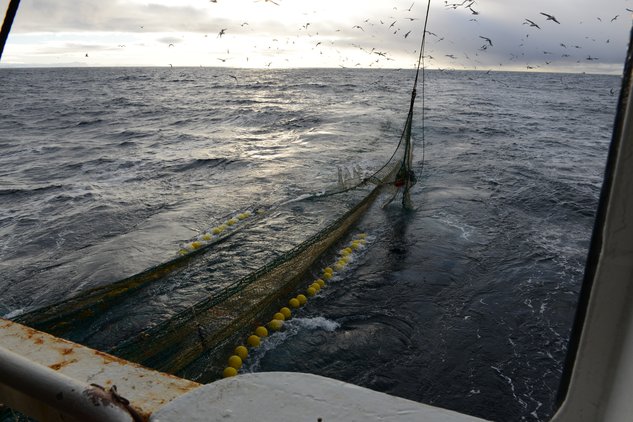
Vision
A research arena that acknowledges and understands the complexity of modern industrial fishing and food production is needed. CRISP will provide this arena by bringing together world-leading Norwegian companies that supply fishery technology and marine products and scientific research institutions into a virtual centre.
World fisheries exist within an all-encompassing domain of globalization, population growth and environmental challenges, with a consequent plethora of local, regional and global crises of various degrees of gravity. Within this domain, fisheries and aquaculture provide a significant share of the world's food supply, contributing about 110 million tonnes of fish in 2006, of which 92 million tonnes originated from capture. This is equivalent to a per capita supply of 16.7 kg of fish, and it currently seems reasonable to expect that marine fisheries in the future will provide between 80 and 90 million tonnes per year (Anon. 2009a). The sector now needs to make considerable efforts to adapt to a situation of no, or very limited, growth in landings and more stringent management of fishing effort.
The fishing industry, in spite of being heavily regulated, is still largely private, with normal profit objectives. This situation is not likely to change. CRISP’s focus will be on sustainable harvesting according to regulations, augmenting the value of the catch through improved quality, and also on improving efficiency to reduce costs.
Seafood is an important source of healthy food for a growing world population. In order to maintain this valuable food supply, the resources must be managed and harvested sustainably. The fishing fleet faces challenges related to issues such as:
• bycatch, discards and incidental mortality,
• environmental effects of fishing gears including impact on the sea-bed,
• energy consumption,
• release of engine exhaust gases, and
• product quality relative to profitability of products.
Consumers are increasingly concerned about such issues, and certification schemes are already in place for many fisheries and fish products Sector-based industries and research groups are not capable of developing equipment and processes that can meet new requirements.
Within this scenario the Centre for Research-based Innovation in Sustainable Fishing and Pre-processing technology (CRISP) will perform research aimed at enabling innovation in technologies and solutions for sustainable harvesting and optimal pre-processing of live marine resources. The goals of the Centre will be met through specific projects that aim to enable skippers to make informed decisions from the point in time when the fish is located until the catch is landed.
As a virtual centre CRISP will focus its research and development within three pillars of research:
Pillar 1: Technology for fish detection, classification and capture process monitoring
Pillar 2: Low-impact and selective fishing gears
Pillar 3: Quality and value adding
